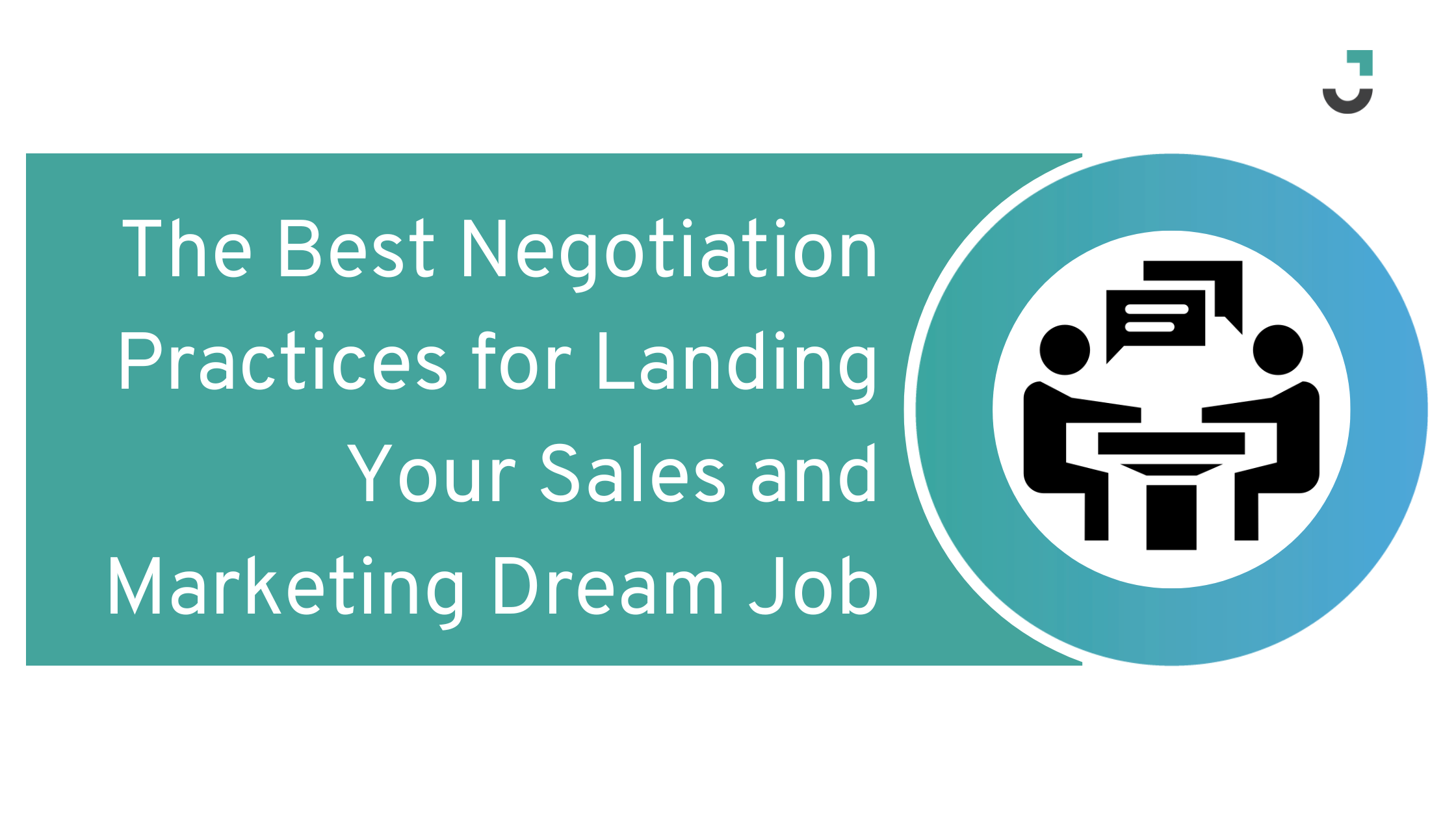The dream job takes many shapes and forms, as it’s subjective and we all have different ideals of what that role would manifest as. While a dream job is potentially unattainable, there are tricks to attain the best job possible. And in sales and marketing, in particular, there are very tactile ways to attain a job more closely in line with the dream during the recruitment process—it all comes down to how well you negotiate. Here are some tips for negotiating during the hiring process that can help transform a great job opportunity into “the dream.”
Know What You’re Worth:
There can be a large difference between what you want and what you’re worth to an employer, so it’s essential that you go into negotiations with two things very clearly in mind. The first is understanding what the market is paying and offering benefits package wise to someone in your role, with your experience, education, and skills. The second is understanding that not all employees with the same job title are worth the same—you may be someone with a much stronger work ethic, track record of success, shining references, etc. Whatever it is, couple market data with what you know you are worth. Be very clear on exactly what you’re looking to get out of the job in terms of the compensation and benefits package.
Best Alternative to a Negotiated Agreement (BATNA):
You cannot always get exactly what you want when you negotiate during the hiring process. So it’s important to have a BATNA—a clear parameter of where you’re willing to let negotiations go. This way you’ll feel comfortable when you get the job that the role you landed is still close enough to the dream to be acceptable. Things like pay, bonuses, perks, stock plans, healthcare, flexible working hours, holiday pay, and any other benefits are all components of the BATNA. While you may not get exactly what you’re looking for in one area of the negotiation, if you can excel in another area, then you can make up the difference and still end up with the best alternative.
Build Rapport:
Sounds obvious, right? However, building a strong relationship with the decision-maker who is hiring you gives you more leverage when it comes to negotiating the terms of your job. When someone likes you, they feel more compelled to give you what you want. So if you’re looking to increase your chances of getting your best market-value package or BATNA, rapport is certainly your friend in increasing those odds.
Set Your Expectations:
This is something that not all who read this will agree with, but I believe it’s better to be clear with your potential new employer about what you’re looking for and it’s about delivering that message at the right time. Once you have had a solid set of interviews, you can read the interest and rapport in the meeting. Don’t be shy. Say what you’re looking for in terms of your package and remuneration. If you have done enough research about the going market rate and also are confident about your worth, unveiling what you’re looking for immediately sets the bar of expectation in the mind of your new employer. You can then look to either move to BATNA or get exactly what you asked for.
The Power of Silence:
Knowing when and how long to remain silent for is an art that if you can master, will easily give you the edge in any negotiation. This is because the other person who is not as skilled in the art of silence, will inevitably begin to talk themselves into giving you what you want. It also gives you a chance to pause and reevaluate the landscape during a negotiation—if you just continuously speak, it’s actually possible to talk yourself out of a deal. Remember to say your piece, then keep your mouth shut, and allow the interviewer to arm you with more ammunition as you break down the situation in your favor.
Be Prepared to Walk Away:
It’s easy to think that if you walk away the deal is over, but actually, that can be quite the opposite. Walking away is a demonstration of focus, control, and power over a situation. It shows many positive things about you as an individual—you have the courage to walk away from something if it’s not right for you, you have the willpower to strive for what you want, and you’re willing to simply say no (which is powerful). Being able to say no and conducting yourself really well during negotiations for your job is a good indicator to potential employers that you are an excellent salesperson.
Original Article Found Here
Original Author: Arran Stewart, Chief Visionary Officer and Co-founder of Job.com
Job.com is a digital recruitment innovator with a unique perspective: Delivering technology and capabilities that shake up the market by bringing together a data-driven approach based in AI and machine learning with high-level, human-capital-delivered solutions, designed to efficiently attract and retain the right talent and provide consumer-level user experiences throughout the hiring process.

